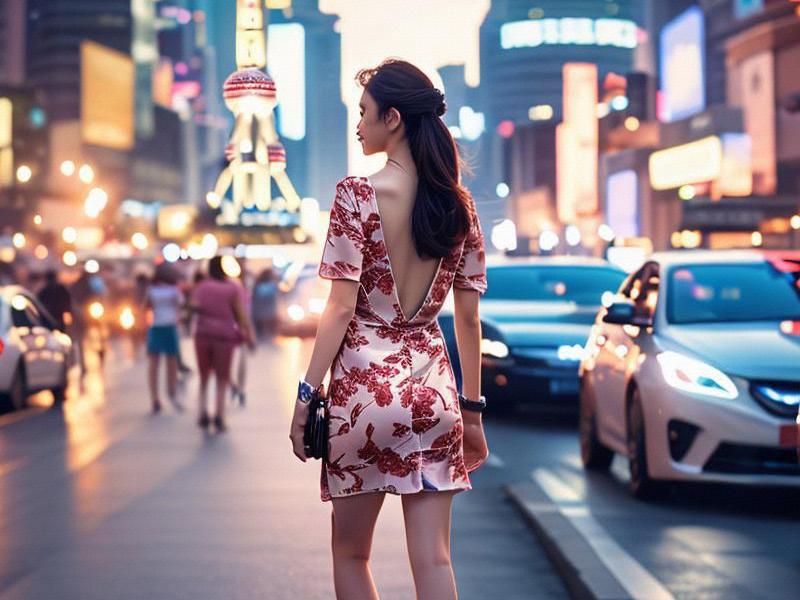
Shanghai's cultural identity is deeply rooted in its history. The city was once a major port along the Yangtze River Delta, serving as a gateway for trade and cultural exchange between China and the outside world. During the late 19th and early 20th centuries, Shanghai became known as the "Paris of the East," a cosmopolitan hub where Chinese and Western cultures coexisted and influenced each other.
The Bund, a historic waterfront area, stands as a testament to this era of cultural fusion. Once lined with colonial-era buildings, the Bund now showcases a harmonious blend of European architectural styles and Chinese elements. Visitors can stroll along the promenade, taking in the stunning views of the futuristic skyline of Pudong across the Huangpu River. The juxtaposition of old and new is a visual representation of Shanghai's cultural duality.
Shanghai's cultural heritage is also evident in its traditional neighborhoods, such as the Old City and the French Concession. These areas are home to centuries-old temples, gardens, and residential buildings that provide a glimpse into the city's past. The Yu Garden, a classical Chinese garden built in the Ming Dynasty, is a prime example of traditional architecture and horticulture. Visitors can explore its intricate pavilions, rockeries, and ponds, immersing themselves in the serene beauty of ancient Chinese culture.
Art and literature have long been integral to Shanghai's cultural fabric. The city has a rich history of literary movements, particularly during the May Fourth Movement in the early 20th century. Writers such as Lu Xun and Eileen Chang emerged from Shanghai, contributing significantly to modern Chinese literature. Today, Shanghai continues to be a hub for literary and artistic creativity, with numerous bookstores, art galleries, and cultural festivals.
上海龙凤419 The Shanghai International Literary Festival, held annually, attracts writers, poets, and literary enthusiasts from around the world. The festival features panel discussions, workshops, and readings, fostering a vibrant exchange of ideas and promoting literary excellence. Similarly, the Shanghai Art Fair showcases contemporary art from both Chinese and international artists, highlighting the city's role as a global cultural center.
Culinary traditions are another essential aspect of Shanghai culture. The city is renowned for its distinctive cuisine, known as "Shanghai food" or "Hu cai." Shanghai cuisine is characterized by its mild flavors, delicate textures, and emphasis on fresh ingredients. Signature dishes include Xiaolongbao (soup dumplings), Shengjianbao (pan-fried dumplings), and sweet and sour Mandarin fish.
The city's culinary scene is a melting pot of flavors, reflecting its diverse population and historical influences. From traditional Shikumen (stone gate) restaurants to modern Michelin-starred establishments, Shanghai offers a wide range of dining experiences. The vibrant food markets, such as the Nanxiang Steamed Bun Shop and the Yuyuan Bazaar, provide an authentic taste of local delicacies and a glimpse into the daily lives of Shanghainese people.
Shanghai's rapid urban development has brought about significant changes to its cultural landscape. The city's skyline is dominated by iconic modern landmarks, such as the Oriental Pearl Tower, the Shanghai Tower, and the Jin Mao Tower. These skyscrapers symbolize Shanghai's status as a global financial hub and a center of innovation.
上海喝茶群vx Despite its modernization, Shanghai has managed to preserve its cultural heritage. The city has implemented various initiatives to protect historical sites and promote traditional arts. For example, the Shanghai Museum houses an extensive collection of Chinese art, ranging from ancient bronzes to contemporary paintings. The museum's mission is to educate the public about China's rich cultural history and foster an appreciation for the arts.
Cultural festivals and events play a crucial role in showcasing Shanghai's diverse cultural offerings. The Shanghai International Film Festival, one of the oldest and most prestigious film festivals in Asia, attracts filmmakers, actors, and film enthusiasts from around the world. The festival highlights the latest trends in cinema and provides a platform for emerging talent.
The Shanghai Spring International Music Festival celebrates classical music with performances by renowned orchestras and soloists. The festival's program includes a mix of traditional Chinese music and contemporary compositions, reflecting the city's commitment to cultural diversity. Similarly, the Shanghai Fashion Week showcases the latest trends in fashion design, blending traditional Chinese elements with modern aesthetics.
上海喝茶服务vx Shanghai's cultural scene is also enriched by its vibrant community of artists, musicians, and performers. The city is home to numerous art districts, such as the M50 Creative Park and the West Bund Art & Design. These areas provide a space for artists to showcase their work and interact with the public. The M50 Creative Park, located in a former textile factory, has transformed into a thriving arts community, featuring galleries, workshops, and cafes.
The city's music scene is equally diverse, with live music venues offering performances by both local and international artists. From jazz clubs to rock bars, Shanghai's nightlife is alive with the sounds of different genres. The city's music festivals, such as the Strawberry Music Festival and the Shanghai Jazz Festival, attract thousands of music lovers each year.
Shanghai's cultural identity is shaped by its ability to embrace both tradition and modernity. The city's rich history, artistic expressions, culinary traditions, and dynamic cultural scene make it a unique destination for visitors and residents alike. As Shanghai continues to grow and evolve, its cultural heritage remains a source of pride and inspiration, ensuring that the city's spirit of innovation and creativity endures.
In conclusion, Shanghai culture is a fascinating blend of tradition and modernity, reflecting the city's historical roots, artistic achievements, and rapid urban development. From its historic landmarks to its contemporary landmarks, from its traditional cuisine to its vibrant art scene, Shanghai offers a rich and diverse cultural experience. As the city continues to thrive on the global stage, its cultural identity remains a testament to its resilience and adaptability, making it a true jewel of China's cultural heritage.
